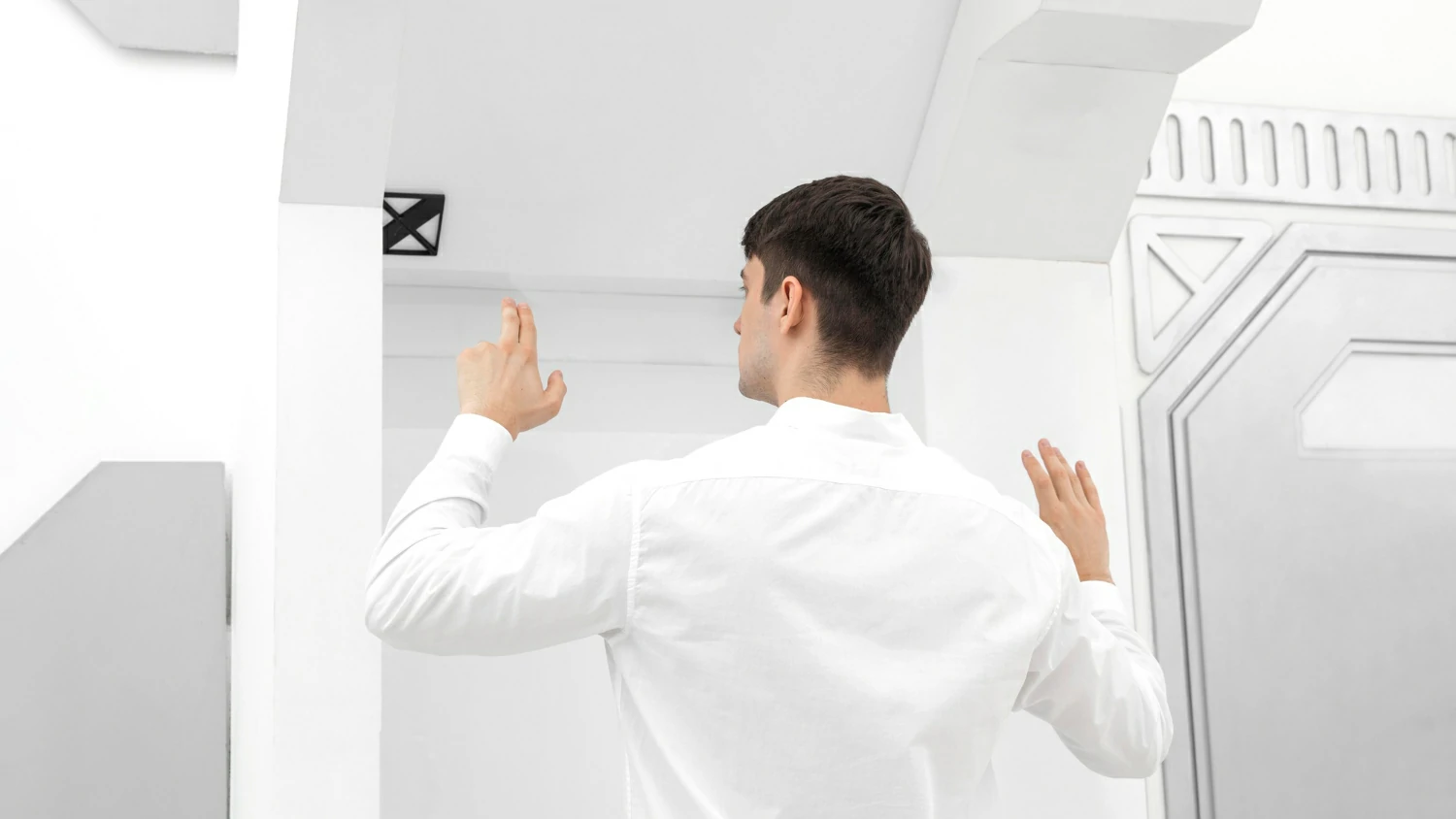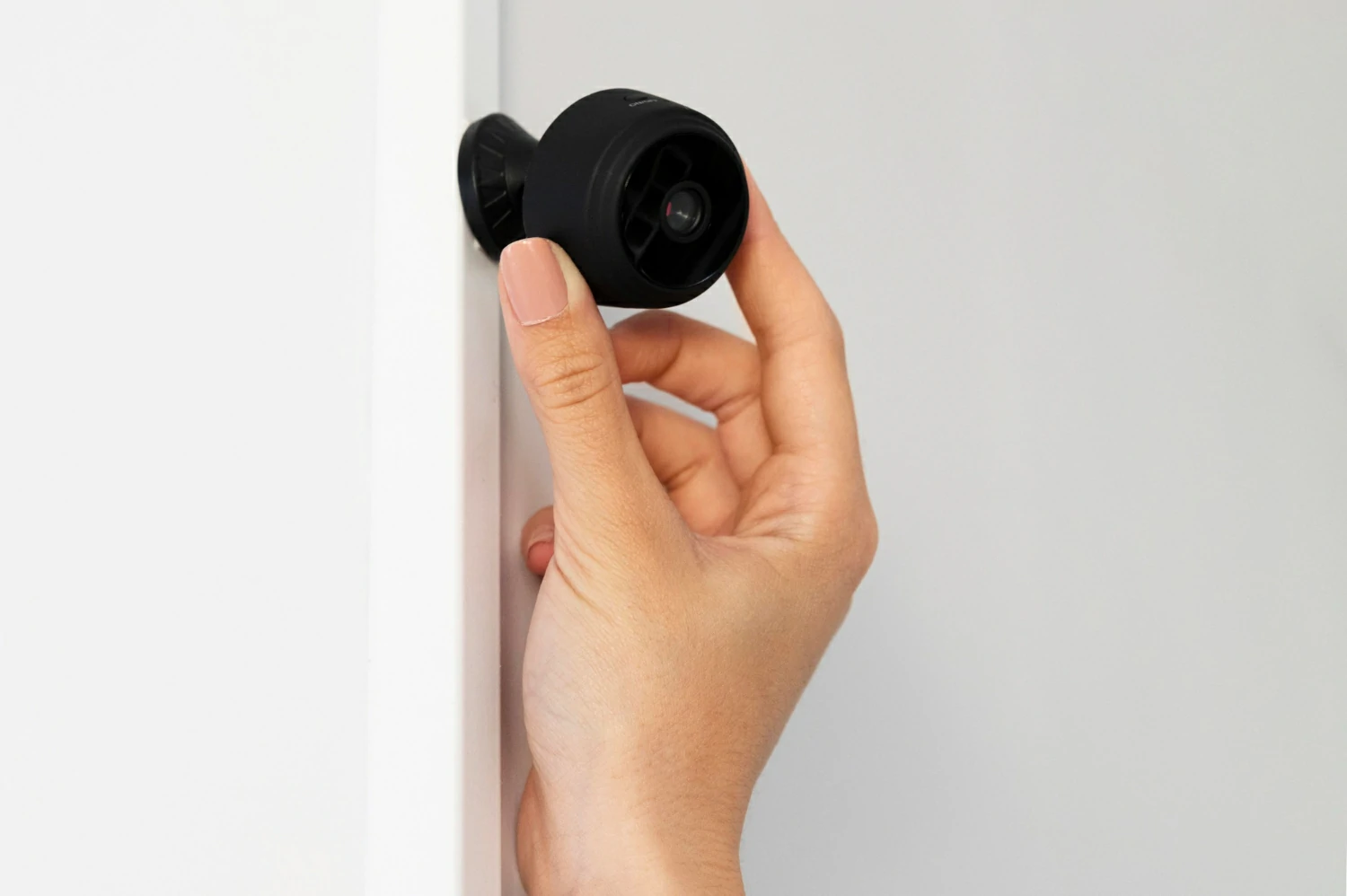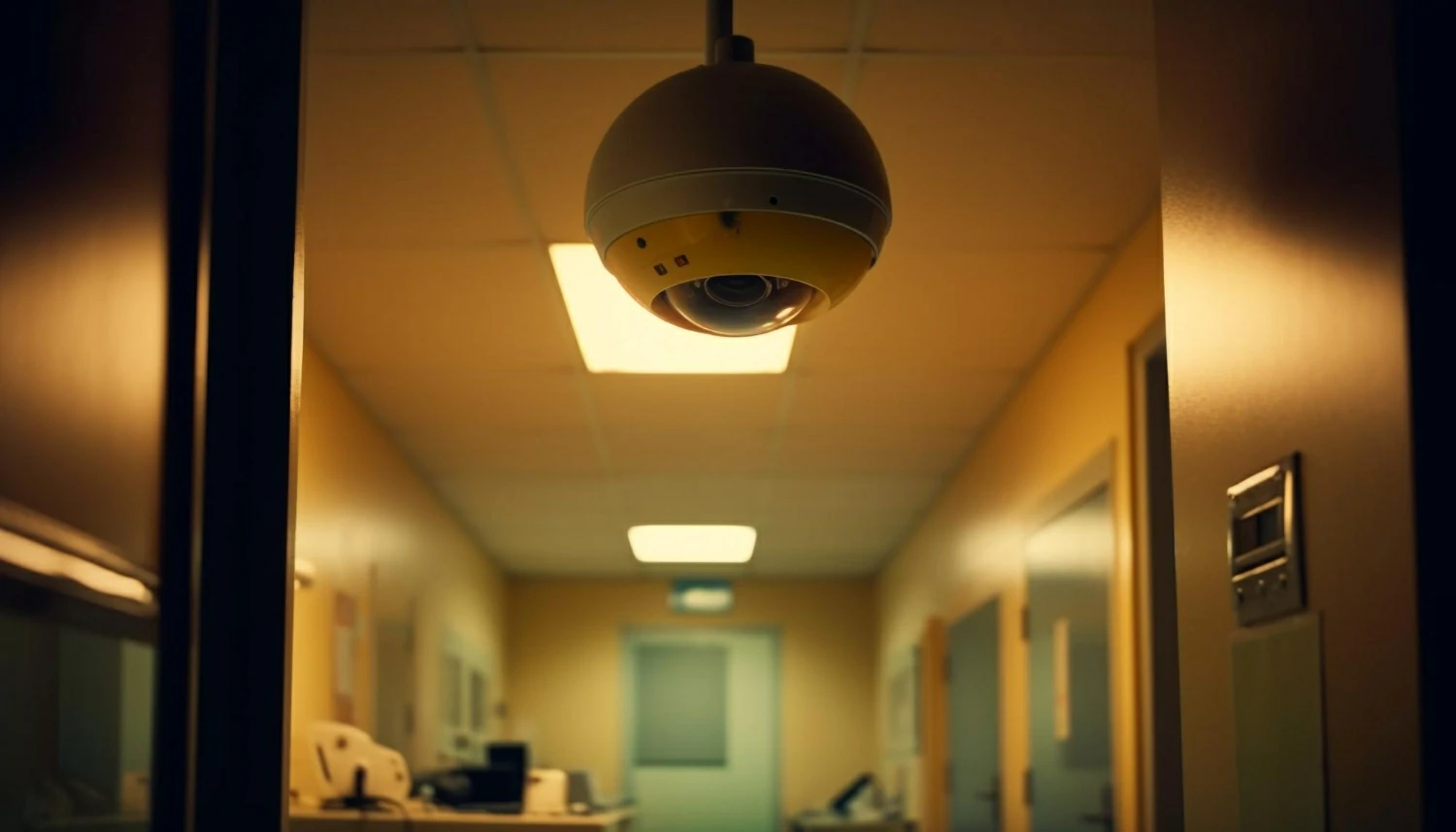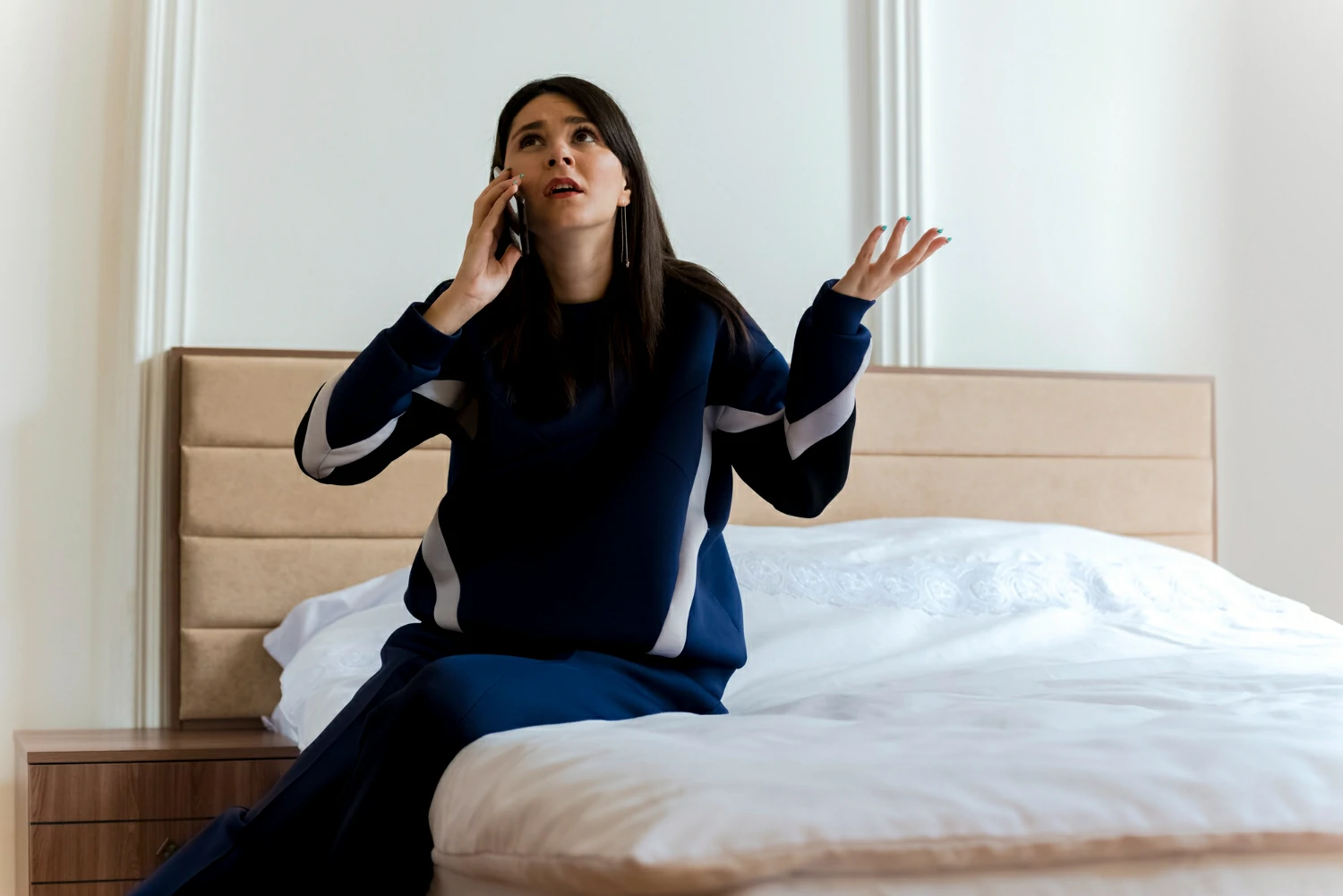Do hotels have cameras in rooms? Answer is – Hotels are generally not allowed to install hidden cameras in private guest rooms due to privacy laws and guest expectations. This applies to bedrooms, bathrooms, and changing areas. However, hotels may use security cameras in public areas like hallways, lobbies, and elevators for safety purposes.
Summary
- Hotels are prohibited from placing hidden cameras in private guest rooms.
- Security cameras may be legally used in public areas of hotels.
- Airbnb and vacation rentals pose a slightly higher risk for hidden cameras, but remain uncommon.
- Laws regarding hidden cameras vary between states and countries.
- If you suspect a hidden camera in your room, there are steps you can take to detect it.
Do Hotels Have Cameras in Rooms?

The idea of being secretly filmed in a hotel room is enough to make anyone’s skin crawl. News stories about hidden cameras discovered in vacation rentals and hotel rooms occasionally surface, fueling our anxieties about privacy in spaces we assume are safe. But how real is the threat, and how vital is it for guests to maintain vigilance for their own privacy?
The Concern about Hidden Cameras in Hotel Rooms
Reports of hidden cameras tucked into smoke detectors, alarm clocks, or even bathroom fixtures naturally instill a sense of unease.
These incidents undermine our trust in the hospitality industry and violate our fundamental right to privacy.
While reputable hotels prioritize guest safety and respect, the potential for voyeuristic individuals to install hidden cameras can’t be entirely dismissed.
The Importance of Privacy for Hotel Guests
When we book a hotel room, we expect more than just a clean bed and fresh towels. We expect a sanctuary – a temporary space where we can relax, unwind, and feel secure in the knowledge that our private moments are just that: private.
Hidden cameras shatter that sense of security, turning a relaxing getaway into an experience fraught with anxiety and a feeling of violation.
Beyond the immediate emotional distress, discovering a hidden camera in your hotel room can have long-lasting consequences.
The footage obtained could be used for blackmail, extortion, or even non-consensual distribution on the internet, causing severe reputational and emotional harm.
Sarah Thompson Expert Opinion
“Unfortunately, the threat of hidden cameras in hotel rooms is more than just a hypothetical concern,” says cybersecurity specialist Sarah Thompson. “While most hotels take guest privacy seriously, technological advancements have made small, discreet cameras readily accessible. It’s essential for travelers to be aware and take basic precautions.”
Can Hotels Legally Have Cameras in Rooms?

The legality of cameras in hotel rooms is a complex issue that hinges on the fundamental expectation of privacy and varies depending on the specific location. Understanding the legal landscape is crucial for both hotels and guests to ensure compliance and protection.
1. Privacy Laws and Expectations in the United States
In the United States, most states have laws prohibiting the surreptitious recording of individuals in locations where they have a reasonable expectation of privacy.
This generally includes hotel rooms, specifically bedrooms, bathrooms, and changing areas. Installing hidden cameras in these areas without explicit guest consent would be a direct violation of privacy laws.
However, the situation can become less clear-cut in public or semi-private areas within a hotel room. Some states may allow recording with the consent of only one party involved.
This means that while a hidden camera aimed at the bed would be illegal, one positioned towards the room’s entrance might fall into a legal gray area.
2. Laws in Other Countries
Privacy laws related to surveillance vary drastically between countries. Some nations have stricter regulations than the United States, while others might offer fewer protections for guests.
If you are traveling internationally, it’s crucial to research the specific privacy laws of your destination. A good place to start is with government websites or travel advisories from reputable sources:
- The U.S. State Department Travel Information
- Individual country government websites
3. Exceptions for Security Purposes (Rare)
There may be rare instances where hotels can legally install cameras within guest rooms under strict conditions.
These usually pertain to ongoing investigations with law enforcement or compelling security threats against a specific individual.
However, such cases would necessitate warrants, court orders, and likely, the clear notification of the guest.
Jennifer Miller Expert Opinion
“The law is generally on the side of guest privacy when it comes to hotel rooms,” explains privacy attorney Jennifer Miller. “Hotels have a duty to protect their guests, but that doesn’t extend to secretly recording them in spaces meant for private activities. If there’s a legitimate security concern, transparency and open communication with the guest is paramount.”
Where Hotels Can (and Cannot) Place Cameras

Maintaining guest safety and preventing crime are legitimate concerns for hotels. However, this need for security must always be balanced with the fundamental right to privacy that guests expect. Understanding these boundaries is important for both travelers and hotel management.
1. Common Areas Where Cameras are Allowed
Hotels typically have the legal right to install surveillance cameras in public areas to enhance security and deter criminal activity. These areas can include:
Lobbies and Reception: Monitoring the front desk area helps prevent theft and ensures guest interactions are properly documented.
Hallways and Corridors: Cameras in these spaces can help identify unauthorized access, disturbances, or potential safety hazards.
Elevators: Cameras inside elevators aim to prevent vandalism, assist with identifying potential disputes between guests, and provide an extra layer of security.
Parking Areas: Surveillance in parking lots and garages deters theft and provides footage in the event of accidents or damage to vehicles.
Pool Areas or Fitness Centers: Hotels may monitor these spaces for liability purposes and to ensure guests are following posted safety rules.
2. Areas Where Cameras Are Strictly Prohibited
The law is extremely strict regarding places where guests have a heightened expectation of privacy. Cameras are absolutely forbidden in these locations:
Inside Guest Bedrooms: This is the most fundamental privacy protection. Hidden cameras in bedrooms, even those with the intent of providing security, are illegal in most jurisdictions.
Bathrooms: Filming or recording anyone in a bathroom is a serious violation, regardless if it’s in a private guest room or a shared restroom facility.
Changing Rooms or Locker Rooms: These spaces, often found near gyms or pools, are designated for changing clothes and offer no expectation of being surveilled.
Robert Hanson Expert Opinion
“Hotels walk a fine line between providing security and respecting guest privacy,” explains Robert Hanson, a hospitality law specialist. “While cameras can be used legitimately in certain areas, the sanctity of private spaces like bedrooms or bathrooms must never be violated.”
Airbnb and Vacation Rentals: Are They Different?

The rise of Airbnb and other vacation rental platforms has revolutionized the travel industry, offering travelers unique accommodations and often more affordable options than traditional hotels.
However, when it comes to privacy and the potential for hidden cameras, there are significant differences to consider between these rentals and hotels.
1. Increased Risk with Individually Owned Properties
Unlike hotels, which are subject to corporate oversight and often have strict standards, Airbnb and vacation rentals are typically owned and operated by individuals.
While most hosts are trustworthy and respect guest privacy, this less centralized model carries a slightly increased risk.
A rogue host with malicious intent might be more likely to install a hidden camera without the knowledge or oversight of a larger management company.
It’s important to understand that Airbnb does have policies against hidden cameras, but enforcement ultimately relies on guests reporting violations.
2. Importance of Reading Reviews and Policies
Mitigating the risk in Airbnb and vacation rentals rests heavily on the traveler proactively doing their research:
Scrutinize Reviews: Thoroughly read reviews from previous guests. Look for any mentions of feeling uneasy, concerns about privacy, or strange objects found in the rental.
Study the Listing: Carefully examine the rental listing’s description and photos. Does the language seem transparent and professional? Are there any unusual objects visible in the photos that could potentially conceal a camera?
Message the Host: Don’t hesitate to contact the host directly and inquire about their security policies in regards to cameras. A legitimate host should have no problem reassuring you that there are no hidden cameras in the rental.
Understand Airbnb Policies: Familiarize yourself with Airbnb’s policies on surveillance devices. They have a clear stance against undisclosed cameras and offer pathways for reporting.
Mark Harrison Expert Opinion
“While the vast majority of Airbnb hosts prioritize guest privacy, it’s wise to approach these rentals with a slightly heightened level of awareness,” says travel safety expert, Mark Harrison. “Doing your due diligence by researching the host and the listing thoroughly can go a long way in ensuring a comfortable and worry-free stay.”
How to Detect Hidden Cameras in Hotel Rooms

Unfortunately, hidden cameras are becoming smaller and more sophisticated, making them challenging to spot. Here’s the good news: there are several ways to increase your chances of finding them if they are present.
1. Manual Inspection Techniques
Start with a thorough visual sweep of the room, paying close attention to these common hiding spots:
Smoke detectors: Examine smoke detectors for any misalignment, unusual wiring, or tiny pinhole openings.
Alarm clocks: Look for odd angles, extra screws, or anything that seems out of place in the device’s construction.
Electrical outlets: Be wary of outlets that appear loose, tampered with, or positioned strangely.
Decorations and fixtures: Inspect picture frames, air vents, tissue boxes, lamps – even stuffed animals or books.
Under furniture: Don’t forget to check under beds, tables, and behind chairs.
2. Using Your Phone’s Flashlight or Camera
Your smartphone can be a helpful tool in the search for hidden cameras:
Flashlight Technique: Turn off the lights in the room completely. Slowly sweep your phone’s flashlight across all surfaces, looking for any unusual reflections or glints. Camera lenses, even tiny ones, can reflect light back.
Phone Camera Technique: Some hidden cameras emit infrared (IR) light that’s invisible to the naked eye. Your phone’s front-facing camera might be able to detect this light. In a darkened room, open your front camera and scan for any small, bright sources of light.
3. Specialized Detection Devices
If you’re especially concerned or frequently travel, you can invest in specialized devices designed for locating hidden cameras:
RF Signal Detectors: These devices scan for radio frequencies (RF) commonly emitted by wireless cameras. Look for devices specifically designed for counter-surveillance.
Lens Finders: These tools contain a red light filter. When looking through the filter and shining the light, camera lenses tend to reflect back, making them easier to spot.
Jessica Clark Expert Opinion
“While you shouldn’t let the fear of hidden cameras overshadow your travels, it’s wise to be proactive,” says private investigator Jessica Clark. “A basic visual inspection of your room upon arrival, coupled with using your phone’s flashlight, can go a long way in providing reassurance.”
What to Do If You Find a Hidden Camera

1. Documenting the Evidence
Before taking any further action, prioritize documenting everything:
Photographs: Take clear photos of the camera from multiple angles, including its surroundings and placement.
Video: Record a video walkthrough showing the camera’s location, how it’s concealed, and its context within the room.
Important: Do not touch or dismantle the camera. Leave it exactly as you found it.
2. Contacting Hotel Management or the Police
The next step depends on the severity of the situation and your personal comfort level:
Hotel Management: If you feel relatively safe and believe the camera might be the isolated act of an individual employee (like a housekeeper), you can start by notifying hotel management. Request to speak to the highest-level manager or security personnel available. Be clear, calm, and present your evidence. A reputable hotel should take this very seriously and involve law enforcement immediately.
Law Enforcement: If you suspect the situation is more extensive, for example, involving organized criminal activity or if you don’t trust the hotel to handle it appropriately, proceed with contacting the police directly. File a detailed report and provide all your documentation.
Sarah Bennett Expert Opinion
“Finding a hidden camera is a serious violation of your privacy. Your focus should be on gathering evidence and getting the appropriate authorities involved,” emphasizes criminal defense attorney, Sarah Bennett. “Remember, you have rights, and it’s important to exercise them.”
Protecting Your Privacy in Hotel Rooms

While we want to believe the spaces we choose to relax in are completely private, it’s wise to be proactive in protecting yourself. Here’s how to strike the balance between vigilance and enjoying your stay:
1. Tips for Being Aware of Your Surroundings
Conduct a Room Inspection: Upon arrival, even in reputable hotels, take a few minutes to visually scan the room. Pay attention to common hiding places for cameras: smoke detectors, alarm clocks, electrical outlets, and decor. Trust your instincts – if something feels off, don’t hesitate to ask for a different room.
Understand Detection Techniques: Familiarize yourself with methods for detecting hidden cameras, including using your smartphone’s flashlight and camera. For more in-depth information on how to search, consider this resource: How to Find Hidden Cameras in a Hotel Room.
Minimize Digital Footprints: Where possible, use cash for incidentals rather than leaving your credit card information with the hotel. When using the hotel’s Wi-Fi, be cautious about accessing sensitive information or making online transactions. A VPN (Virtual Private Network) can enhance your online security when traveling.
Secure Your Valuables: Utilize the room’s safe for important documents, cash, or expensive jewelry. If you don’t feel comfortable leaving something behind, carry it with you while you’re out.
Door Safety: Utilize the door’s deadbolt and peephole whenever possible. Be cautious about answering the door for unexpected visitors, such as room service you didn’t order.
2. Choosing Reputable Hotels and Vacation Rentals
Your choice of accommodations plays a substantial role in minimizing privacy risks:
Prioritize Established Brands: Select well-known hotel chains with reputations for upholding guest safety and privacy standards. While these can’t entirely rule out isolated incidents, they often have strict corporate policies regarding surveillance.
Research Reviews Thoroughly: Read online reviews from multiple platforms, specifically looking for mentions of privacy concerns, unusual experiences, or staff that made guests feel uneasy.
Airbnb and Vacation Rental Precautions: Scrutinize the listing description and photos closely. Contact the host directly to inquire about their camera policies before booking.
Trust Your Instincts: If upon arrival, something about the hotel or rental property just doesn’t feel right, don’t hesitate to request a room change or consider alternative accommodations.
Emily Parker Expert Opinion
“Being proactive is the best defense against privacy breaches while traveling,” states travel blogger and safety advocate, Emily Parker. “Choose wisely where you stay and always take a few minutes to check your surroundings – that small investment of time can do wonders for your peace of mind.”
Conclusion
While the risk of encountering hidden cameras in reputable hotels remains relatively low, informed awareness is a powerful tool for every traveler.
The expectation of privacy in a hotel room is a basic right, and any violation is a serious matter.
By choosing accommodations wisely, utilizing basic detection techniques, and knowing what to do if you discover a hidden camera, you take charge of your safety and privacy while traveling.
Remember, most hotels prioritize guest safety and security within the bounds of the law. The travel industry depends on trust, and reputable establishments won’t jeopardize that for short-sighted voyeuristic gain. Let vigilance be your guide, not fear.
FAQs
What do hidden cameras in hotel rooms often look like?
Hidden cameras are designed to blend in, making them difficult to detect. They can be disguised as common objects, such as:
- Smoke detectors
- Alarm clocks
- Electrical outlets
- USB chargers
- Pens, picture frames, or tissue boxes
- Air fresheners
For a visual guide, consider reputable resources like: What To Look For When Searching for Hidden Cameras:
Is it legal to record someone without their consent in a hotel room?
In most jurisdictions, the answer is a resounding no. Privacy laws generally prohibit recording anyone without their knowledge in spaces where they have a reasonable expectation of privacy (bedrooms, bathrooms, changing areas). However, some states have “one-party consent” laws, meaning a recording might be legal if only one person involved knows about it. This makes researching specific location laws crucial.
Can I sue a hotel if I find a hidden camera in my room?
Absolutely. Discovering a hidden camera in your hotel room is a severe breach of privacy and can be grounds for legal action. Potential claims could include:
- Invasion of privacy
- Intentional infliction of emotional distress
- Negligence on behalf of the hotel
Consulting an attorney is the best course of action to explore your legal options.
What should I do if I’m unsure about the camera policies of a hotel?
Don’t hesitate to ask! Contact the hotel directly by phone or email and inquire about their policies regarding surveillance cameras. A reputable hotel should be transparent and able to clarify where cameras are allowed and where they’re absolutely forbidden.







